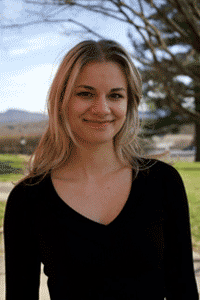
Molly Cooper
A simple, but profound calculation tells us that most people will spend about one-third of their life working. Given this substantial time investment, it’s hardly surprising that researchers have found that general life satisfaction is correlated with work satisfaction (Wantanabe and Judge, 1993). Therefore, it is wise to spend our educational years considering as many career options as interest us to find the ones that may provide meaning and enjoyment, alongside a paycheck.
Researchers have posited that many individuals -historically underrepresented groups in particular -tend to prematurely dismiss potentially rewarding, viable career paths (Hacket and Betz, 1981). Fortunately, Social Cognitive Career Theory (SCCT) can be used to identify key factors that influence our career choices and development (Lent et al., 2002). According to SCCT, self-efficacy, outcome expectations and goals are paramount to this end. As college students, you can develop each of these elements and discover professional fulfillment in avenues you may not have considered before.
Self-efficacy is the confidence in one’s ability to succeed. Those with high self-efficacy approach challenges positively, recover from failures and attribute them to effort, knowledge or skills that can be acquired (Bandura et al., 1994). SCCT proposes that those with low self-efficacy, regardless of abilities or experience, are likely to prematurely discount some career paths that might be the most enriching and viable (Lent et al., 2002). The good news is that self-efficacy can be developed through time, patience and practice. Here are some tips to improve your self-efficacy:
- Celebrate small achievements and embrace failures as progress and check out Self-efficacy in New Year's Resolutions.
- Seek support from family, friends, counselors, mentors or career-affiliated groups. Explore advice in Resilience Amid the Job Search Process.
Outcome expectations refer to our beliefs about the consequences of our actions that impact our perceived career choice options. These expectations can be either negative or positive. For instance, a negative expectation might involve fearing ridicule for wearing particular clothing, while a positive expectation could come from mastering a new skill. Try some of these tips to improve negative outcome expectations:
- Reconsider a career you’ve dismissed and assess the perceived barriers. Analyze the likelihood of encountering these obstacles. Chances are, there are ways to navigate them successfully. If you’re not sure where to start, seek help. Explore related insights in Attitudes and Mindsets that Support Success.
- If it seems too difficult to start or negative expectations are sapping your motivation, then ask for help. Join a campus community sharing your interests –they likely face similar fears or collaborate with a counselor. Check out this resource on Question Your Negative Beliefs About Self Help.
Setting goals can be the easiest, most actionable step in beginning to take control of your career path. When you set a reasonable goal, you initiate a sequence of actions that can enhance your self-efficacy and shape more positive future outcome expectations. Here are some ideas for goal setting:
- Unsure how to pursue your career goals? Browse LinkedIn for inspiration from others who have ended up somewhere you would like to be.
- Set both long-term and short-term goals to mark your progress. Explore tips for Pursuing Imminent and Long Term Goals.
- Make weekly strides despite your college workload using advice from Optimizing Your Goals.
Rather than being hapless bystanders to external forces, SCCT views people as capable of self-reflection, self-regulation and forethought’ (Lent et al., 2002). These capabilities are present in every one of us, and it is likely that by taking action and reconsidering your options, there are more doors open to you than you may have believed.
Here are some campus resources that might be useful in the process:
